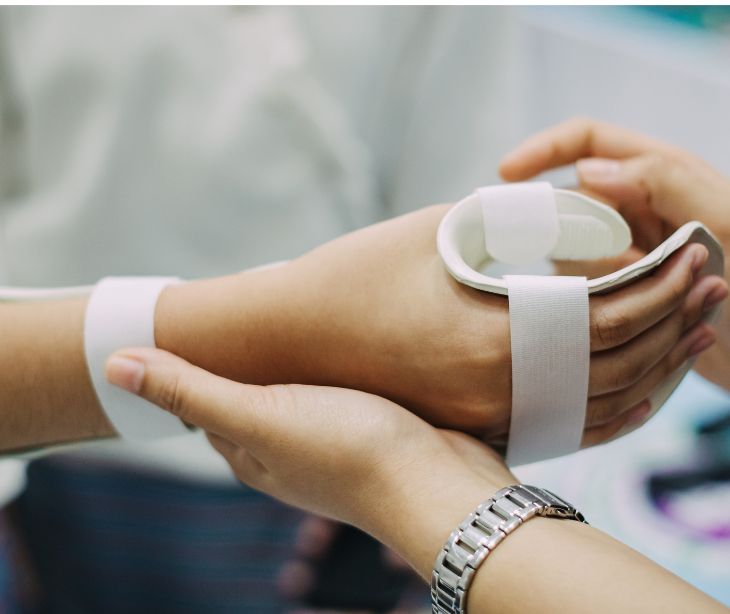
When social workers work with clients, they often need to know about their health to help them properly. HIPAA ensures that social workers keep this information safe and only share it when necessary and allowed by the law. This helps protect the privacy of the people they are helping.
A summary of the key rules
HIPAA's Privacy Rule
The Privacy Rule sets standards for protecting individuals' medical records and other personal health information (PHI). It applies to healthcare providers, including social workers, and stipulates how to use and disclose PHI. The rule requires entities to take reasonable steps to ensure the privacy of their patients/clients. It gives patients rights over their health information, including rights to examine and obtain a copy of their health records, and request corrections.
HIPAA's Security Rule
The Security Rule specifies a series of administrative, physical, and technical safeguards for covered entities to use to ensure the confidentiality, integrity, and security of electronic PHI (ePHI). This includes secure access to ePHI, protecting against unauthorized access, ensuring data integrity, and training staff in security protocols. The goal is to ensure that ePHI is appropriately protected while allowing the flow of health information needed to provide high-quality healthcare.
HIPAA's Breach Notification Rule
This rule requires covered entities and their business associates to provide notification following a breach of unsecured PHI. A breach is generally an impermissible use or disclosure under the Privacy Rule that compromises the security or privacy of PHI. The rule sets standards for how and when patients must be notified, what the notification must include, and when the Department of Health and Human Services and the media must be informed about the breach. Notifications must be provided without unreasonable delay and in no case later than 60 days following the discovery of a breach.
See also: A guide to HIPAA's rules
How does HIPAA affect client interactions?
HIPAA requires social workers to maintain the privacy of their clients' health details, influencing every aspect of their interaction. For instance, when discussing sensitive health information, social workers must ensure they do so in private settings, avoiding public or insecure channels like unencrypted emails or open conversations where others might overhear. They also need to use secure, HIPAA compliant methods for storing and transmitting any health-related information. Furthermore, HIPAA grants clients the right to access and review their health records, obliging social workers to provide these records promptly and appropriately.
See also: The different types of HIPAA forms
Handling electronic communications
- Use secure platforms: Always use secure, encrypted platforms for electronic communications like HIPAA compliant email software, text messaging, or video calls. Make sure the services used meet HIPAA standards.
- Get consent: Obtain and document consent from clients before using electronic communication. Explain how their information is protected.
- Limit information shared: Only share the minimum necessary information required for a particular purpose in communications.
- Verify recipient identity: Always check and confirm the recipient's identity before sending ePHI to avoid accidental disclosure to unauthorized individuals.
- Use strong passwords: Protect accounts and devices with strong, unique passwords and change them regularly.
- Regular backups: Back up ePHI to secure, encrypted locations to prevent data loss.
- Secure mobile devices: If using mobile devices for communication or access to ePHI, ensure they are password-protected and have encryption.
How to avoid HIPAA violations
- Secure physical documents: Keep all physical documents containing PHI in a secure location, such as a locked file cabinet, and limit access to authorized personnel only.
- Dispose of information properly: When disposing of documents containing PHI, use a shredder or a secure disposal service.
- Clear desks and screens: Practice a clear desk and screen policy; ensure that PHI is not visible to passersby on any desks or computer screens.
- Be cautious with faxes and printers: When sending faxes or printing documents containing PHI, check that they are being sent to the correct recipient and retrieved immediately.
- Verify information requests: Before releasing any PHI, always verify the requester's identity and their right to access the information.
- Report incidents promptly: If there is a suspicion that a breach or violation has occurred, report it immediately according to your organization's protocols.
- Understand consent and authorization: Be clear on when consent or authorization is needed from a client to disclose their PH
Subscribe to Paubox Weekly
Every Friday we'll bring you the most important news from Paubox. Our aim is to make you smarter, faster.



